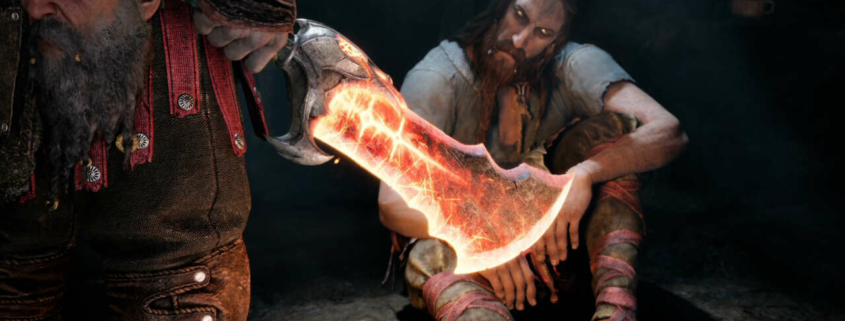Best Of 2022: God Of War Ragnarok’s Twist On Norse Mythology Is An Excellent Subversion
Spoilers ahead for God of War and God of War Ragnarok
“Baldur is blessed with invulnerability to all threats, physical or magical,” Mimir explains to Kratos and his son Atreus in 2018’s God of War. Yet as soon as Sindri, the dwarven blacksmith, gave a bundle of mistletoe arrows to the young god, I knew Baldur’s fate was sealed.
I’m not an expert on Norse mythology, but the fables of Odin, Thor, the giants, and Vanir are something I’ve had an interest in for a number of years now. I know the broad strokes surrounding Ragnarok and some of the smaller myths, ranging from the story of Thor creating the tides after being tricked into drinking the ocean, to the tale of the construction of Asgard’s walls–which ends with Loki being impregnated by a horse, incidentally. While some players were wondering how Kratos was ever going to stop an unkillable god, I knew the answer was already sitting right in front of us, neatly docked on Atreus’ quiver. The exact details of Baldur’s eventual demise may differ in God of War compared to the Norse mythology it pulls from, but mistletoe–and by extension, Atreus–still play a crucial role in the death of its fearsome antagonist.
Most of what we know about Norse myth comes from the Poetic Edda and the Prose Edda, two Old Norse texts from the 13th century. I’ve briefly explored both, but most of my knowledge of these old pagan tales comes from Neil Gaiman’s Norse Mythology, an excellent book that retells many of the Norse myths while making them palatable for a modern audience. Because of this, God of War didn’t throw too many curveballs my way apart from one major exception. The final reveal that Atreus is in fact Loki was a fairly shocking one, not least because it introduced some issues regarding the timeline of events. For the most part, however, God of War sticks fairly closely to the mythology it’s pulling from, only notably deviating when it comes to its depiction of certain characters and their prominence in the story. Oh, and there isn’t usually an angry Greek god, either.
Going into God of War Ragnarok, I was expecting more of the same–more subtle spins on otherwise well-established mythos. I couldn’t have been more wrong. For all the praise I could lavish on so many different aspects of Santa Monica Studio’s spellbinding sequel, the one that stands out as most deserving is how often the game’s narrative toys with established knowledge of Norse mythology before subverting those expectations in fascinating ways.

